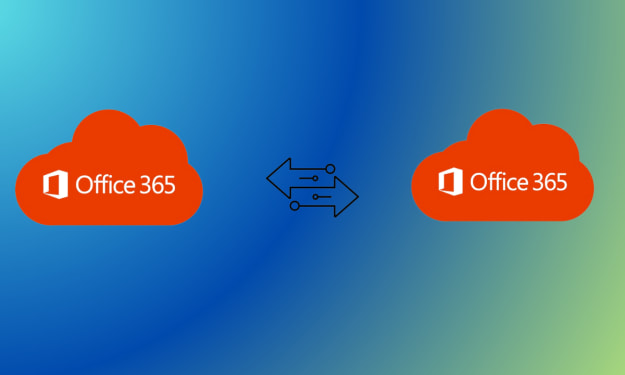When are startup costs expensed and when are they capitalized?
Startup costs are expensed in the period they are incurred. Capitalized startup costs are those that have future benefits and extend beyond a single project or indeterminate period.

Startup costs are typically expensed in the income statement. However, in situations where the startup costs are directly related to the acquisition of an asset, and the asset is capable of generating future revenues, then this acquisition cost should be capitalized and added to the cost of the asset.
Generally, startup costs are either capitalized or expensed.
In the first year of operation, companies generally expense the costs of starting a new business. This is often referred to as “startup” costs. Startup costs are those incurred in establishing a business entity. This includes legal fees, accounting fees and other administrative costs that are not related to purchasing physical assets.
The treatment of startup costs depends on whether they were incurred in connection with developing or abandoning a product or service line. If they were incurred in connection with developing or abandoning a product or service line, then they must be capitalized as part of the cost of goods sold (COGS) or research and development (R&D).
In contrast, if startup costs are not associated with developing or abandoning a product or service line then these costs can be expensed immediately when incurred because they do not represent an asset that will be used by the firm over time.
Generally, you capitalize costs if they relate to creating or getting ready to run a business.
Startup costs are the expenses you incur before your business is operational. When it comes to accounting for startup costs, there are two options: You can expense them as soon as you pay them. This is the most common approach. You can capitalize them and then depreciate them over a number of years.
(Depreciation is an accounting method that allows you to spread out your cost over time.) Generally, you capitalize costs if they relate to creating or getting ready to run a business. For example, you would likely capitalize the cost of developing a new product line or a new marketing campaign — but not the cost of buying office supplies and computers.
When to Expense Startup Costs Expensing startup costs means writing down all expenses in the year that they're incurred. For example, if you buy equipment for your business in January 2020, but don't open your doors until December 2020, then you'd be able to deduct that equipment purchase in 2020 — even though it wasn't used until after that date.
This approach results in more deductions being taken in early years than later ones because some businesses have high startup costs while others don't have many at all.
You can choose to capitalize or expense up to $5,000 of startup costs, depending on your total startup costs.
Startup costs are expenses you incur in order to start a business. They include things like legal fees, accounting fees and advertising costs. You can choose to capitalize or expense up to $5,000 of startup costs, depending on your total startup costs. If your total startup costs are less than $5,000, then you can deduct them all in the year that you incur them.
For example: If your total startup costs are $2,500 or less, then you may be able to deduct all of them in the year that they were incurred. If your total startup costs are more than $5,000 but less than $50,000 and you meet certain other requirements (such as having sufficient capital), then you can deduct up to $5,000 of those costs in the first year and capitalize the rest for amortization over 15 years (180 months).
An expense needs to meet three criteria in order to be capitalized and depreciated over time.
The answer depends on the type of startup cost and the business purpose for which it is incurred. A startup cost is an expense that is not a part of the normal operating costs of a business. It often refers to the initial cash outlay required by a new venture, such as purchasing equipment or paying rent on office space.
When an expense meets three criteria, it can be capitalized and depreciated over time. The three criteria are: The expense must be incurred in order to start up or acquire a business. This includes paying for marketing materials, legal fees and other expenditures related to getting started in business. The expense must be paid prior to earning any revenue from your new venture.
If you have revenue coming in before paying out expenses, then those expenses should not be deducted from income; they're considered operating costs rather than startup expenses. This can be tricky when you have multiple co-owners — each owner will need to pay some amount of money into the business at different times before getting paid back for their investment (which means there could be some timing issues).
The amount of money spent must exceed a predetermined amount set by law (or accounting standards) called "materiality.
In conclusion
Companies must separate between direct and indirect costs of startup. In most cases, the indirect costs will be expensed rather than capitalized. Indirect costs relate to intangible items that cannot be adequately identified with an individual project or product. For example, since a company hires staff, purchases equipment and makes some long term contracts before even making any profit.
These costs are considered to be an investment and hence are expensed when incurred.See Robert Morris's decision tree at: http://www.robertmorris.edu/faculty/rm/assets/pdfs/DecisionTreeCostsStartUp-may2014.pdf for more helpful tips on this subject.
About the Creator
Abraham Verninac
🤓 I am an entrepreneur who builds brands/influencer. And I want to chat with anyone that is interested in starting their own business/brand or who wants to take it to the next level! You can message me anytime!
Reader insights
Nice work
Very well written. Keep up the good work!
Top insights
Easy to read and follow
Well-structured & engaging content
Eye opening
Niche topic & fresh perspectives
Masterful proofreading
Zero grammar & spelling mistakes






Comments (2)
Abraham, your article about startup costs is a real gem! It's like finding money in the back pocket of your old jeans (only way nerdier). The way you explain when to expense and when to capitalize had me nodding like a bobblehead. Thanks for putting the "fun" back in fundamental accounting principles!
Abraham, you've hit the nail on the head (no pun intended, I promise)! Your article on startup costs has us all feeling a little less financially confused and a little more sane. It's like you've invented the ultimate budgeting hack – now if only we could expense our takeout addiction! Great job, love your work!